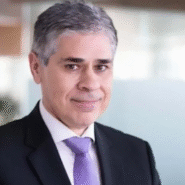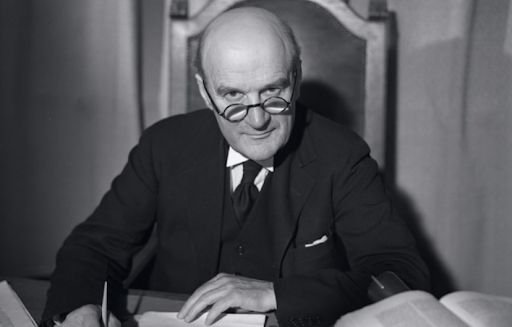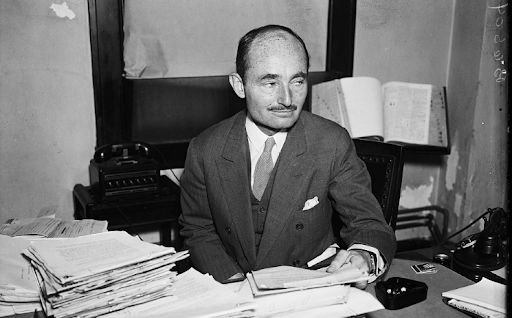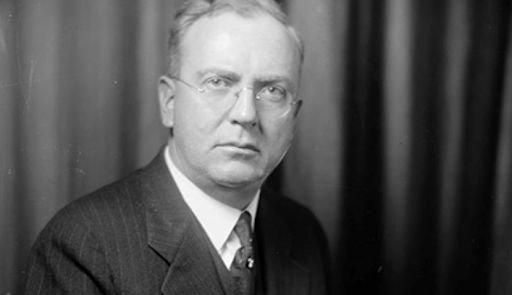Geoffrey Lawrence, born on December 2, 1880, in London, England, and died on August 28, 1971, was a renowned lawyer and judge who led the «Nuremberg Trial», a case whose final goal was to prosecute politicians and regime leaders responsible for war crimes during World War II.
Lawrence was appointed as the chief judge of the case, a very important role during the trial. Several countries that identified attacks against peace and humanity by Nazi politicians and leaders agreed to conduct a trial in Nuremberg, a German city. The International Military Tribunal took one year to convict more than 20 German defendants, who were charged under a cause defined as “Supreme International Crime”.
“War crimes and crimes against humanity”
The Nazi Germans were targeted by the United Kingdom, France, the Soviet Union, and the United States as “murderers”, and then the US called for several additional trials following the genocide of many Jews during World War II, known as the “Holocaust”.
Lawrence was one of the judges in the session and was praised by the legal field for his behavior throughout the trial. A year before the sentencing began in the Nuremberg Trial, in 1944, the Briton had been appointed “Lord Justice of Appeal”.
After several negotiations
After multiple negotiations between the countries attacked by the Nazis, the US, United Kingdom, and France agreed to proceed with a trial to condemn the massive attacks and murders carried out by the Nazi regime in several countries around the world. Lawrence took the reins of the trial, but how did he reach such a position of highest responsibility?
Lawrence before becoming the judge of the Nuremberg case
He first joined a Bar Association and later allied with Robert Finlay, a British lawyer and judge who also served as Lord Chancellor in the UK. He served as second and lieutenant general in the Royal Artillery of France until he moved to a private environment, specifically the Jockey Club, due to his passion for horses. Next, he was appointed “King’s Counsel”, a high-ranking position in the old society.
His first contact with the most vulnerable during the early Nazi attacks was in 1938, before the start of World War II, when he helped a civilian escape. After the turbulent Second World War, the strong demand by some countries to bring charges against the Nazis put Lawrence in the spotlight, and he was appointed as the chief judge to represent the British unit and be part of the panel of judges in the session that lasted one year.
Having been appointed Judge of the Court of Appeal in England and Wales, during the sessions Lawrence had a role similar to that of other judges, as his position represented the second highest-ranking judge. Half of the judges and selected members came from the United States.
“Crimes against peace”
These were the words of the judges who issued the sentence and agreed on a conviction for several Nazi actors who disrupted the peace of humanity. The United States was the country that pushed for additional trials against other Germans who committed acts against the Jews.
And above all, a trial that, according to experts, marked the beginning of Criminal Law in history and had countless repercussions—initially negative and then positive. And in the middle? Mr. Geoffrey Lawrence, praised for his “moral sense during the cases”.
Baron in nobility
The title of baron in nobility is the lowest of all ranks, but it is still special, especially for Lawrence. The Briton was recognized for his role in the Nuremberg Trial, being the third Baron Trevethin, first Baron Oaksey.
Later, he was part of the Judicial Committee of the Privy Council, the highest court of the Crown Dependency, until his retirement in 1957. After stepping away from the judicial scene, Lawrence dedicated himself to life on the farm. A quieter life, far from the spotlight of the Nuremberg Trial, which was an unusual event in his career and in human history.
A trial that revealed all the evil caused by Nazi leaders who bombed several cities and eliminated millions of Jews. A negotiation between countries that took time but aimed to condemn all the politicians involved in one of the most damaging acts in world history. A Second World War that left consequences, from the rubble to the Court of Appeal, where the verdict handed down a conviction against the Nazi party. Lawrence led the British representation, one of the countries that raised its voice to promote the trial in Nuremberg. And so it was.







